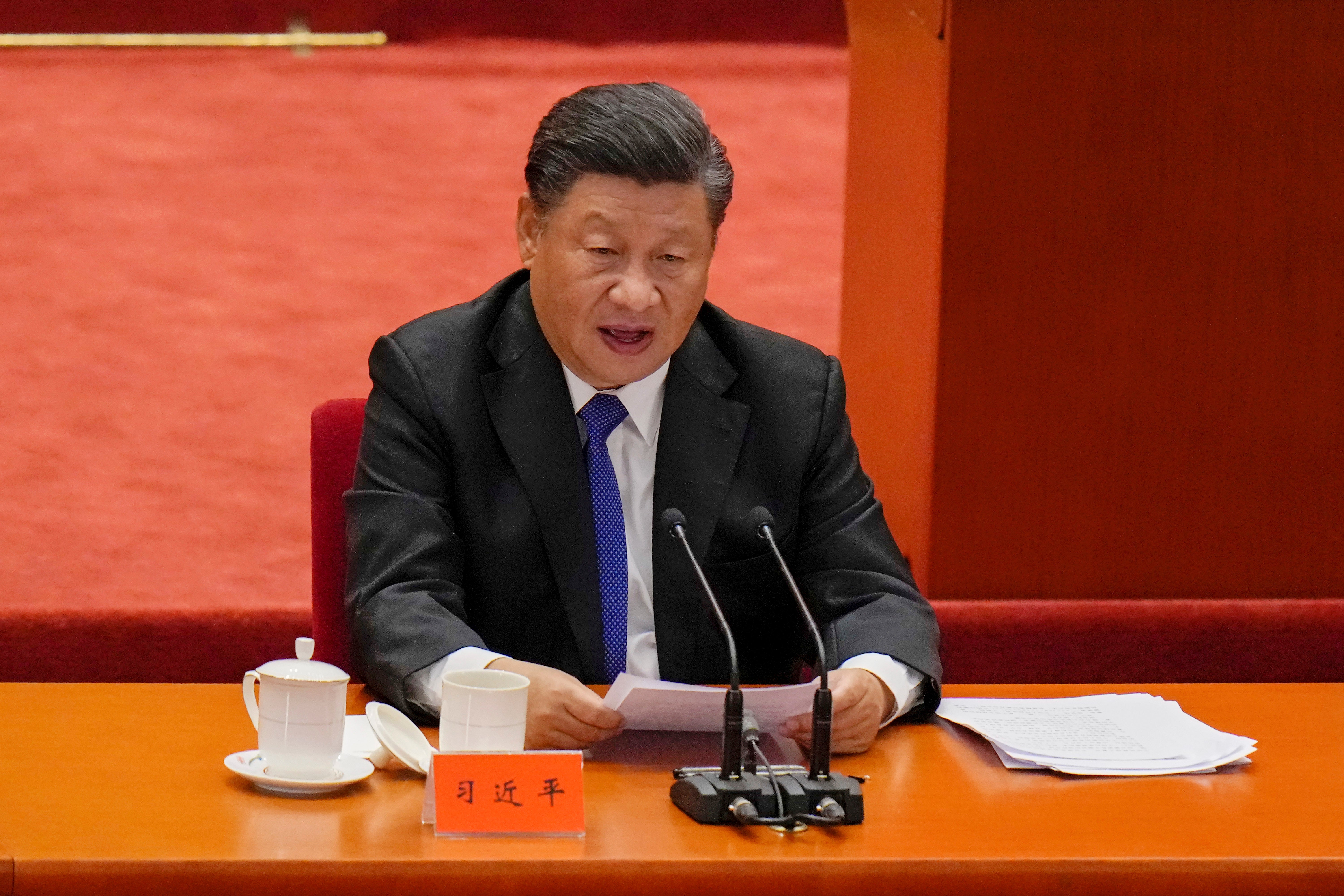China’s Xi vows to pursue reunification with Taiwan
The Chinese president’s address comes amid what is seen as the worst tensions between Beijing and Taipei for decades

Your support helps us to tell the story
From reproductive rights to climate change to Big Tech, The Independent is on the ground when the story is developing. Whether it's investigating the financials of Elon Musk's pro-Trump PAC or producing our latest documentary, 'The A Word', which shines a light on the American women fighting for reproductive rights, we know how important it is to parse out the facts from the messaging.
At such a critical moment in US history, we need reporters on the ground. Your donation allows us to keep sending journalists to speak to both sides of the story.
The Independent is trusted by Americans across the entire political spectrum. And unlike many other quality news outlets, we choose not to lock Americans out of our reporting and analysis with paywalls. We believe quality journalism should be available to everyone, paid for by those who can afford it.
Your support makes all the difference.China’s president Xi Jinping has vowed to pursue what he calls peaceful “reunification” with Taiwan despite Beijing’s scaling up of military activity and heightened tension between the two neighbours.
“Reunification of the nation must be realised, and will definitely be realised,” Mr Xi vowed before an audience of politicians at an event to commemorate the 110th anniversary of the end of China’s last imperial dynasty on Saturday.
Xi described the “Taiwan independence” force as the greatest barrier to reunification with mainland China. “Those who forget their heritage, betray their motherland and seek to split the country will come to no good,” he warned.
Since Taiwan’s split from mainland China in the mid 20th century, the two have been governed separately. But despite never governing the island, Beijing deems Taiwan a part of its territory.
Xi laid out his plan for reunification under a “one country two systems” policy – a restructuring vehemently opposed by Taiwan.
He said: “People should not underestimate Chinese people’s determination to defend national sovereignty and territorial integrity. The task of complete reunification of China must be achieved, and it will definitely be achieved.”
This comes days after Taiwan raised the alarm that China could launch a “full-scale” invasion by 2025. President Tsai Ing-wen said the island nation does not want war, but is prepared to defend itself if necessary.
She said: “Taiwan does not seek military confrontation. It hopes for a peaceful, stable, predictable and mutually beneficial coexistence with its neighbours. But Taiwan will also do whatever it takes to defend its freedom and democratic way of life.”
Last week, over a span of four days, China sent 148 warplanes into Taiwan’s air defence zone in what is described as the worst escalation of tension between the two neighbours in four decades. The recent developments have sparked alarm from leaders around the world. The US, Australia and Japan have urged China to commit to peaceful resolution.
Taiwan celebrates its National Day on Sunday and festivities this year will feature a rare display of military equipment, including missiles and a performance by fighter jets in front of the Presidential Office Building in the centre of Taipei. That marks the first inclusion of military hardware in Taipei’s official celebrations in years, and the first since Ms Tsai took office in 2016. Local media coverage of rehearsals for the celebration showed large missile launch vehicles driving on Taipei’s streets, although the missiles themselves were not directly visible. In the past, the Taiwanese government has kept its missile capabilities out of the public eye to avoid appearing provocative, said Kuo Yu-jen, a defence studies expert at the Institute for National Policy Research in Taiwan.
Mr Kuo added that Taipei feels it “must demonstrate that Taiwan has the ability to deter China's threat” as Beijing becomes “overly assertive”.
In years past, the national day celebration has featured choreographed performances by motorcycle-riding military police and overflights by the island's air force. However, missiles were not part of that display.
"I think this is to raise Taiwan’s people's morale," said Fan Shih-ping, a professor of political science at National Taiwan Normal University.
Additional reporting by AP
Join our commenting forum
Join thought-provoking conversations, follow other Independent readers and see their replies
Comments